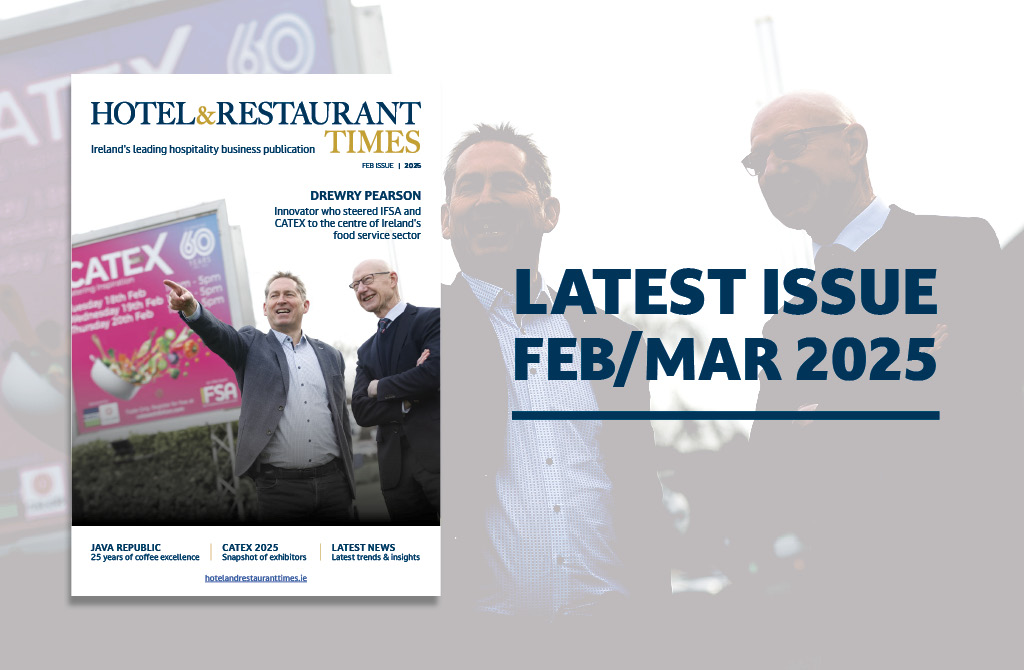
New report exposes flawed Government Impact Analysis for ‘latte levy’, leading to higher costs for consumers, environmental harm, and business setbacks
- Government’s Regulatory Impact Analysis (RIA) is based on inaccurate market data
- New report surveys 2,226 premises across Ireland, estimated to represent 40 per cent of the coffee retailing market
- Coffee retailing sector faces higher costs of €492M due to increased expenditure on dish washing and drying equipment and energy costs
- A move to reusables will increase CO2 emissions, plastic waste, freshwater & energy consumption
- “Circularity is about closing the loop rather than imposing penalties” – Jim Power Economics
A groundbreaking report and survey reveal that the Government has significantly overstated the market share of reusable containers in the takeaway hot drinks industry by a staggering 1,462%. The report reveals that a ban on single-use cups is projected to cause a significant 48.6% decline in coffee sales. International evidence also highlights that transitioning entirely to reusable containers for takeaways will result in a detrimental 280% increase in greenhouse gas emissions by 2030. The expected behavioural change resulting from the proposed levy will not occur, leading to the sole consequence of heightened expenses for consumers, who will be forced to pay higher prices for their coffee.
The report conducted by Jim Power Economics was specifically commissioned to address the shortcomings in the Government’s Regulatory Impact Analysis (RIA), which was released by the Department of the Environment, Climate and Communications (DECC) late last year. A major flaw found in the RIA relates to the assumption that reusable cups hold a 25% market share in the take-away segment. However, a thorough survey conducted across more than 2,200 premises reveals that the actual market share of reusable cups is a mere 1.7%. As a result, the projected market decline resulting from the proposed levy would be significantly higher than initially estimated, ranging from 5% (as stated in the RIA) to a substantial 19.1% to 23.1% when real market data is incorporated into the RIA report methodology.
Concerns surrounding reusable cups also extend to environmental implications such as amplified CO2 emissions, plastic waste, and escalated consumption of freshwater and energy during the processes of washing, drying, and transportation. The shift to reusable cups would entail a sector-wide expense of €492 million, encompassing dishwashing equipment, drying equipment, additional energy costs, and increased employee expenses, all of which counteract environmental benefits. A prior study supports these concerns, revealing that reusable cups generate 2.8 times more carbon dioxide and consume 3.4 times more freshwater compared to single-use, paper-based alternatives.
Leading the report, economist Jim Power said, “The international evidence supporting a levy on single-use cups lacks persuasiveness and raises doubts about its suitability. Vancouver provides an illustrative example, having introduced fees of 25 cents for disposable cups as part of changes to its Licence Bylaw on January 1st, 2022. However, this levy was ultimately abandoned due to its punitive nature, ineffectiveness, and the fact that coffee cups were compatible with paper recycling streams.
“The essence of this report lies in recognising that circularity entails closing the loop rather than enforcing penalties. There are better solutions than unnecessarily levying consumers and negatively impacting the environment and businesses. It is time for Ireland to pause and reflect on what is the correct way forward.”
Speaking on the steeper price consumers will now have to pay, Michelle Mc Bride from Butlers Chocolates said, “For the first time, we have accurate figures and a report that provides a substantial insight into the scale and significance of the sector’s operations, as well as the profound impact it will have on our customers.
“Our loyal customers will bear the burden of these changes, including the 20-cent increase in coffee prices, which amounts to a 6% surge. With rising interest rates and escalating living costs, this additional strain on consumer spending could have a notable impact on demand, employment, and overall business performance within the sector.”












